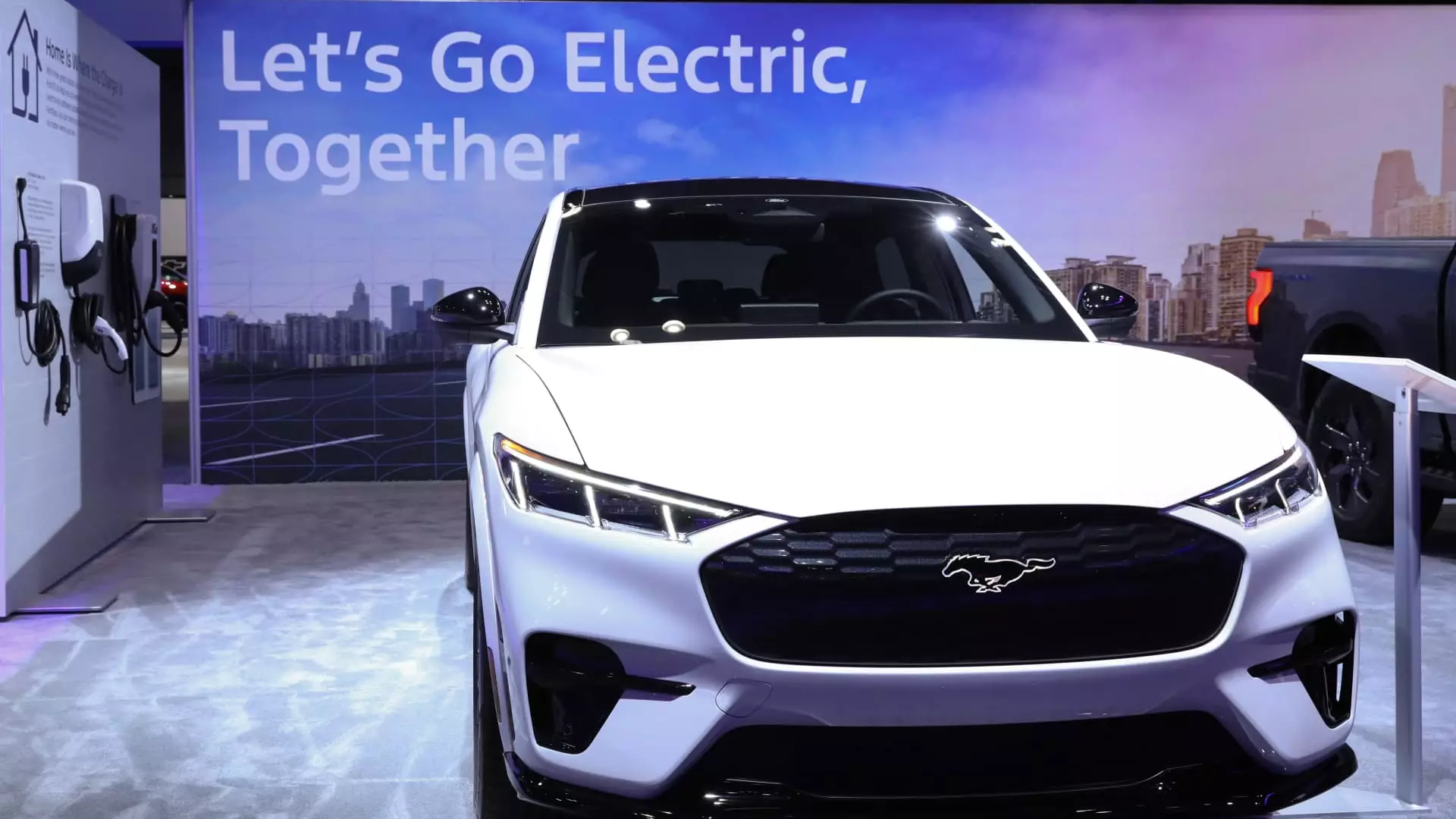In a surprising turn of events, Ford Motor’s U.S. new vehicle sales have seen a significant increase of 11.2% compared to the same month of the previous year. This growth is primarily attributed to the strong sales of all-electric and hybrid models.
Ford reported a remarkable 65% increase in sales of both hybrid and all-electric vehicles, overshadowing the 5.6% rise in sales of traditional vehicles with internal combustion engines. Despite the substantial growth in hybrids and EVs, these segments only accounted for about 14% of the total sales, amounting to around 26,600 vehicles.
Challenges Faced by Ford
The surge in EV sales poses a dilemma for investors as Ford aims to expand its EV sales to achieve economies of scale and navigate stricter fuel economy standards and emissions regulations. However, the company’s Model E electric vehicle unit has encountered significant losses, with reported losses of $1.32 billion on 10,000 vehicles sold during the first quarter of the year.
Despite the challenges, Ford has seen positive trends in the sales of all-electric vehicles. Sales of the all-electric F-150 Lightning pickups nearly doubled in May compared to the previous year, while sales of the Mustang Mach-E EV also witnessed a significant 46% increase year over year.
Ford’s spike in hybrid sales is part of its strategic plan to emphasize hybrid technology. Earlier this year, Ford announced a shift in focus towards offering hybrid options across its entire North American lineup by 2030, delaying the production of new all-electric vehicles.
Ford’s total year-to-date U.S. sales through May have reached 877,685 units, marking a 5.6% increase compared to the same period last year. The growth has been predominantly driven by a 10% surge in SUV sales and a 2.5% uptick in truck and van sales.
Ford Motor’s recent sales data reflect a significant shift towards electric and hybrid vehicles, indicating a growing consumer preference for alternative fuel vehicles. Despite the challenges faced by the company’s EV division, the positive trends in EV and hybrid sales suggest a promising future for Ford in the increasingly competitive automotive market.

